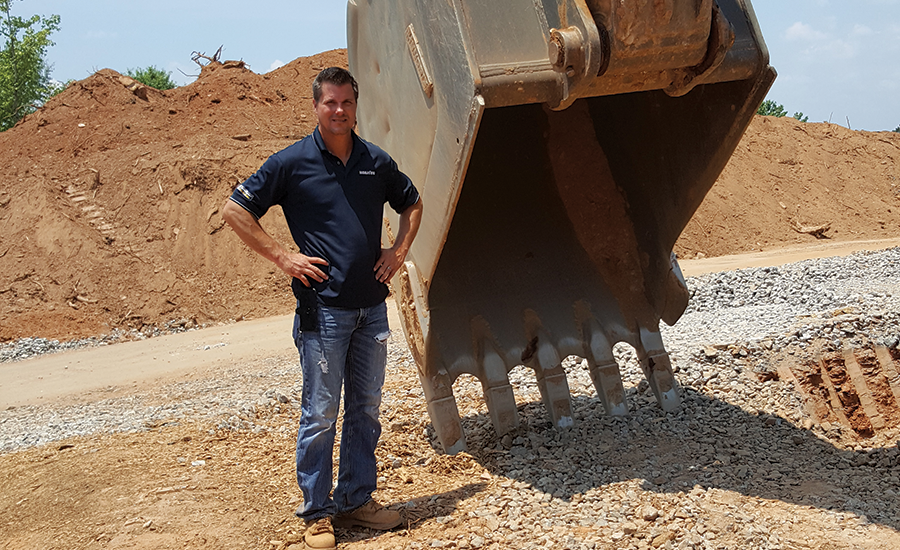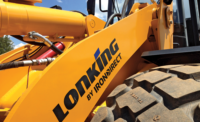Michael Sager grew up in the construction business. At age 10, he started tagging along with his father, longtime Snellville, Ga., contractor Mike, who introduced the youngster to the joy, satisfaction and, at times, frustrating business of earthmoving and civil construction. Young Michael’s penchant for pulling levers was instant and, by his teens, he was on an excavator every day. “I always worked in the summers,” he recalls, “and, when I was in high school, we had one of those early-release work programs and I started doing that my junior year. I would work from lunchtime on every day.”
It paid off. Watching Sager jump up into the cab of a brand new 35-ton Kobelco excavator at a field demonstration in Calhoun, Ga., in April, 2008, a longtime, award-winning construction industry observer was impressed. He marveled at the operating prowess, noting to this reporter standing alongside: “That young man right there has the touch of a classical piano player.” With classic Southern humility, Sager later and still today credits his father.
“I fell right in line with the family business,” he says. “Yes, it was always what I wanted to do.” That family business is today Sager Grading and Pipe Line LLC, and Sager, now 37, runs the business tightly with his father. “We see things the same. There are no issues as far as that goes,” he says. “I’ve seen a lot of father-son deals that don’t work out so good. We’re fortunate.”

“Over the past several years, work has started to pick up, but it's nowhere near where it was.”
–Michael Sager
(37),
Equipment
Operator
Snellville, Georgia
Sager Grading and
Pipe Line LLC
With a staff of eight, the company owns 15 pieces of equipment and has weathered the 2007-2009 economic slowdown that buried many contractors throughout the country. For an outfit that once did $4 million annually working for the same client for 10 years, it meant taking on an assortment of smaller demolition, grading and pipeline jobs “to keep the ball rolling.” Having little debt allowed the company to retain its equipment. “We’ve been fortunate. There’s been a lot of people in our business who didn’t make it,” says Sager. “Over the last several years, it’s started to pick up, but it’s nowhere near where it was. The people with the money are still nervous. The jobs that we are seeing are smaller. We’re not seeing a lot of the great big projects like we were doing. We were doing 100-acre jobs back to back to back; now they are 10- to 15-, maybe 20-acre jobs. We do a lot more moving than we used to. We used to only move two or three times a year doing those big jobs. Now it’s every month, it seems like.”
Sager embraces equipment technology that makes novice operators competent and experienced operators expert. His small company was among the very first in the U.S. to acquire one of Komatsu’s pioneer intelligent machine-control dozers, the D61PXi-23. He recalls trying to touch up a 100,000-sq-ft pad. “You could spend two days trying to put that on grade,” he says, “when you can do it in just a couple of hours with the GPS. It’s been a tremendous, tremendous change for the industry.”
Reminders of his high school football days aside, “just general late 30s aches and pains,” Sager feels good. He lives on a lake, has two little girls continually remind him to have fun, and really doesn’t see himself doing anything different than what he’s been doing much of his life. “Yes, as long as the economy will let us, we will. We love what we do,” he says. “I’m sure we’ll make it. We’ve made it this far.”
|
Back to Craft Workers Open Up About Their Careers |





